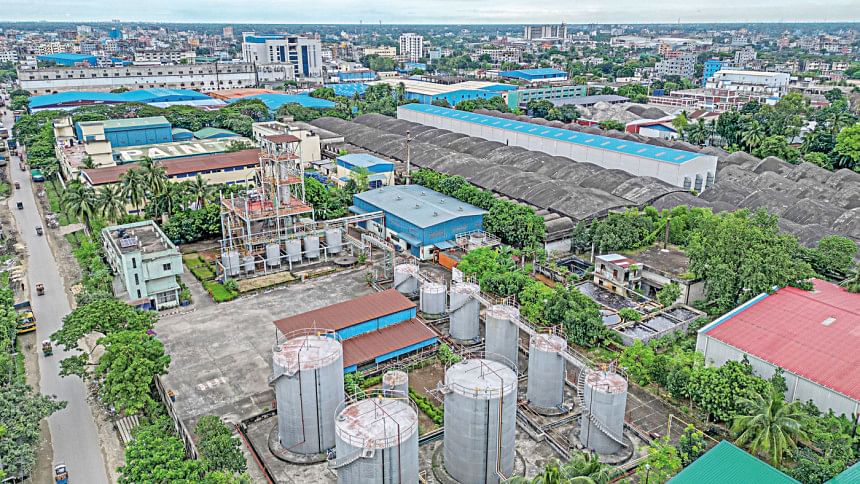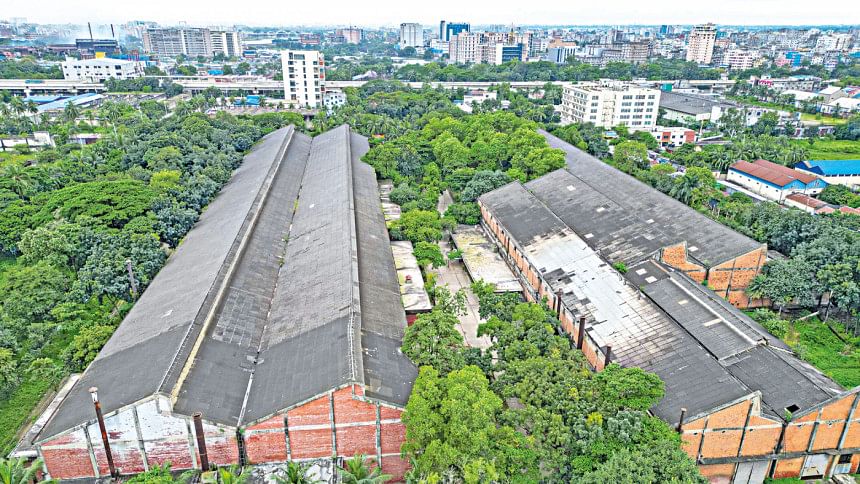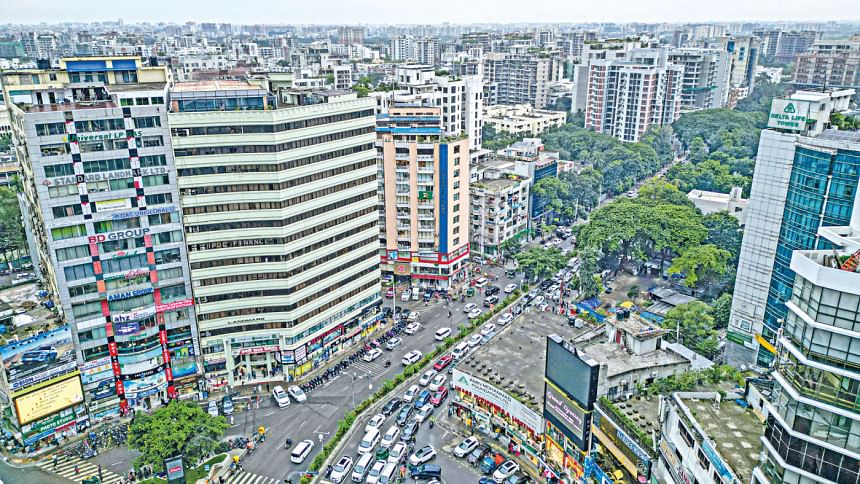How political shifts can make or break business

Local conglomerates have been growing hand in hand with the economy since independence in 1971, but few have managed to navigate the changing tides over the years.
One major reason that corporations have not survived or grown has always been political change.
Following any shift in the political landscape, conglomerates face challenges as they have direct or indirect links with political parties.
Often, such links are forged to access and enjoy power, gain undue advantages, or simply stay in close proximity to powerful ministers and bureaucrats.
However, another major reason that big companies rub shoulders with such individuals is to ensure that they can run a hassle-free business.
As a result, very few conglomerates can grow independently.

Moreover, the top brass of many big corporations have direct or indirect links to politics.
The data from the last national elections in January 2024 also outlines this trend.
Some 200 of the 299 elected members of parliament (MPs) were businesspeople by profession, according to data unveiled by Shushashoner Jonno Nagorik (Shujan), a civil society platform.
This indicates that the country's national politics is highly business-centric.
It may also explain to an extent why tales of land-grabbing, money laundering, hooliganism and defaulting on bank loans are age-old stories in Bangladesh.
Even banks and the central bank favour delinquents for some inexplicable reason despite the fact that many banks are now enduring a severe liquidity crunch as they were corrupted by individuals who weaponized their political clout.
With the sudden fall of the Hasina administration on August 5, some local conglomerates are also facing challenges.
Before the general elections in January this year, a group of businesspeople pledged their loyalty to Hasina in public.
However, many owners of big corporations are now absconding, with little regard for their business empires.
Some have already been arrested by the police for different offences, including murder cases.
Others fled to luxurious apartments in Canada, USA, London, Dubai, Malaysia and Singapore. Many of those properties were reportedly built with laundered money.
However, the dire straits in which they abandoned the ship show the unscrupulous methods they employed to grow. It is an example of how corporations should not behave.
They are not affected alone. Their downfall also ushers in problems for employees and dependents of employees, banks, business partners and the overall economy of the country.
A businessperson, who runs a company that has an annual turnover in the billions of dollars, said on condition of anonymity that the business model of some corporations was flawed.
"Their target is to make money with undue advantages from the government, not by following a true business model. As a result, they face trouble after any political changeover," the tycoon said.
On the other hand, many have expanded their businesses without proper planning. As a result, they do not find success and ultimately become loan defaulters, creating trouble for other businessmen, banks, insurance companies, employees and the economy.
When they are close to becoming loan defaulters and adding to the nation's burdens, they seek financial aid from the government.
Such weak and greedy companies sometimes even fail to pay salaries to workers.

Due to the lack of proper legal and business guidelines, there has become a marked symbiosis between the rise of conglomerates and political links.
"Many have business models of growing overnight through undue benefits from the government. They do not believe in a slow and steady growth model," the businessperson added.
Ashraf Ahmed, president of the Dhaka Chamber of Commerce and Industry (DCCI), said, "Maintaining the business climate requires the rule of law and due process. No one should be permitted to avail undue business gains, undermining or ignoring the due process of law.
"Economic production capacity is a national resource and its destruction should not be allowed. We should also ensure that whatever steps are taken are per the law and national interest."
WHAT ARE THE SOLUTIONS?
Mohammad Abdur Razzaque, chairman of Research and Policy Integration for Development (RAPID), a private research organisation, suggested double-layer safeguard rules and regulations to prevent conflicts of interest and to protect corporations from devastation during any political changeover.
Primarily, the government should outline what constitutes a conflict of interest if any businessman is involved in politics since any person has the right to be involved in politics according to the law of the land.
For instance, if a businessman-turned-political leader becomes a minister, there should be specific guidelines outlining clearly what kinds of benefits he or she will enjoy.
Secondly, the corporations themselves should have some safeguard measures that allow them to distance themselves from the fallout of any political changeover.
Moreover, corporate safeguard mechanisms have not been established in Bangladesh.
The corporate safeguard mechanisms are a set of guidelines and policies which ensure the conglomerates' survival, even if the owners fall in trouble for any reason because the business entities should not be a victim of any fault of a particular person or group.
For example, if a top official of a company is arrested after a political changeover, this should not result in the company's operations being affected. Instead, there should be safeguard measures that allow the company to carry on, grow, and continue to provide salaries to employees.
The interim government should prioritise reforms in this regard as the political involvement of corporates has increased over the years.
In many countries, there are corporate safeguard measures involving the political parties, government and conglomerates. However, in Bangladesh, owners of some big corporations become ministers, MPs or influential advisers. But after a political changeover, their businesses fall into hot water, also landing thousands of employees in trouble.
M Masrur Reaz, chairman of Policy Exchange Bangladesh, a private think-tank, echoed Razzaque's views.
He also made numerous suggestions.
For instance, it should be recognised that every person has the right to become involved in politics.
He also said there should be a proper process to distinguish businessmen from criminals. Just because someone makes a lot of money through their business, it does not mean they are actively involved in criminal activity.
There must be proof and evidence of wrongdoing before such persons are prosecuted.
Another important factor that Reaz pointed out was the separation of the person from the company. Simply because one individual is corrupt, it does not mean that the whole company is corrupt. Moreover, the well-being of employees is affected by such a line of thinking.
Finally, he suggested that there should be a law that facilitates safe exit from business so troubled companies can safely exit their business in times of trouble.
However, despite the rise and fall of conglomerates, Bangladesh has emerged as the 35th largest economy in the world 53 years into its independence, according to data from the Canada-based online publication "Visual Capitalist" last year.
The World Bank (WB) also said Bangladesh has a strong track record of growth and development, even in times of elevated global uncertainty.
Rapid economic growth over the past two decades has been supported by a robust demographic dividend, strong ready-made garment exports, resilient remittance inflows, and stable macroeconomic conditions.
The country also tells a remarkable story of poverty reduction and development. From being one of the poorest nations at birth in 1971, Bangladesh reached lower-middle income status in 2015.
Poverty declined from 11.8 percent in 2010 to 5.0 percent in 2022, based on the international poverty line of $2.15 a day (using the 2017 Purchasing Power Parity and a comparable welfare series).
The country is also on track to graduate from the UN's Least Developed Countries (LDC) list in 2026.
Despite being the target of a lot of criticism, big conglomerates have immensely contributed to Bangladesh's inspiring story of growth and development.
Since independence, the country has boasted numerous corporations, employing thousands of people in diverse sectors from garment to tea estate, commodities, infrastructures, textile, real estate, power, banking, insurance, shipping and logistics.
At present, many local conglomerates can boast about having turnover in the billions of dollars, which was beyond anyone's imagination even a few decades ago.
Even if they are headed by people with political affiliations, their contribution to the economy, especially in terms of job creation, is nothing to sneeze at.
So, safeguarding these establishments should be a priority.

 For all latest news, follow The Daily Star's Google News channel.
For all latest news, follow The Daily Star's Google News channel. 








Comments